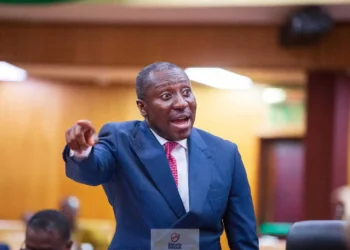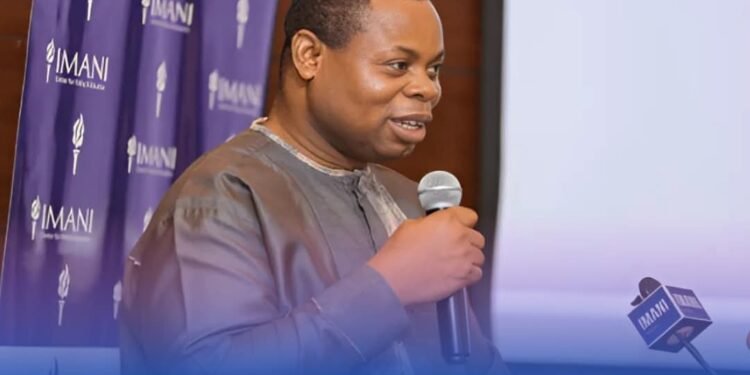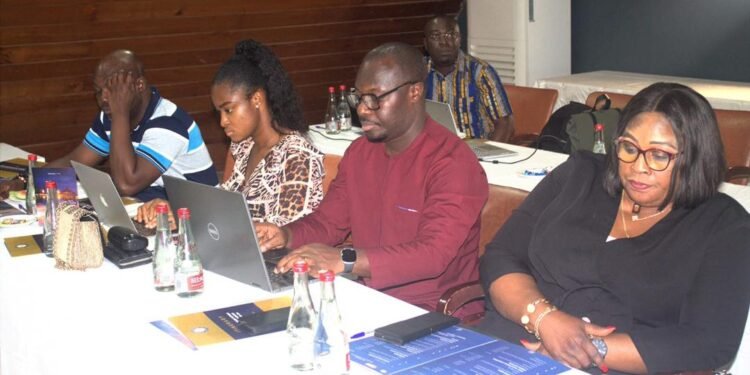Bright Simons, Vice President of IMANI Africa, has raised serious concerns about how private businesses such as Stratcon often escape the level of scrutiny necessary in Ghana’s governance and economic landscape.
According to him, the culture of silence around private companies in policy advocacy is creating fertile ground for opacity and abuse.
Simons explained that whenever his organization mentions private companies or businesspeople in policy discussions, it makes many people uneasy.
Yet, he pointed out, in most national policy issues, at least a third of the story involves the private sector. Despite this reality, there is an unspoken reluctance to bring private players into the spotlight.
“Our shyness in discussing private businesses in Ghana has made most of them totally unused to scrutiny. As soon as you spotlight them a bit, they sue you (SLAPP you; SLAPP = ‘strategic lawsuit against public participation’).
“Everyone is, thus, scared of private businesses in Ghana. Almost no one discusses them, even if their role is critical in a policy issue.”
Bright Simons
Simons illustrated his point by citing the example of Stratcon, a company founded by Harry Campbell and Albert Obimpeh-Abedi, which was registered in January 2017 to operate in financial services and project financing.
Within a short period, the firm rose to prominence in Ghana’s petroleum trading space. Today, Stratcon is even seeking ownership of oil blocks, despite being relatively unknown in the petroleum industry before 2018.
According to Simons, this rapid rise to influence is noteworthy, particularly since the company maintains a low public profile. “Clearly, they like to keep a low profile. Though one half of the duo doesn’t seem to mind getting embroiled in tabloid controversies about child custody,” he remarked.
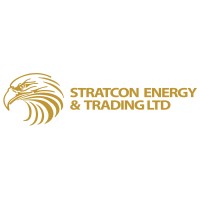
He went on to recount his own experience with the company. In July, he was hit with a “SLAPP” lawsuit by Stratcon for commentary he had made in January regarding public remarks by Ghana’s Energy Minister.
The Minister had expressed confusion over how Stratcon was supplying fuel to power plants without a contract. Simons said his commentary on this statement drew the company’s legal wrath seven months later.
“They filed a lawsuit and splashed it all over the press without even serving me,” he noted. For him, such lawsuits often signal that those initiating them have issues they prefer to keep hidden.
TOR, Stratcon Dispute Deepens Questions
Bright Simons added that his investigations revealed ongoing disputes between Stratcon and the Tema Oil Refinery (TOR), a state-owned company.
He noted that TOR entered into a contract with Stratcon to trade petroleum products and share profits. TOR, however, has accused the company of failing to deliver its share of revenues.
According to Simons, TOR alleged that Stratcon defaulted on its obligations in 2019. Instead of resolving the matter, Stratcon turned around and sued TOR, demanding more money. TOR maintains that the company owes it more than $15 million.

On the other hand, Stratcon has argued that TOR owes it more than $55 million in “lost profits.” Simons highlighted the irony of this claim, describing it as “counterfactual liability paa.”
The heart of the dispute, he explained, lies in the transactions themselves. Records indicate that it was Stratcon that sold the petroleum products to the market.
The same records also show that Stratcon collected the payments from buyers. Yet, despite these facts, TOR is now positioned as the debtor in this financial saga.
Calls For Political And Policy Accountability
Simons further argued that while the commercial dispute is currently before the court, the public is not barred from probing the political and policy dimensions of the case.
He questioned how a relatively new company like Stratcon managed to become so deeply enmeshed with Ghana’s state energy institutions in such a short span of time.
He reminded the public that accountability is not a sprint but a long-term process. “Accountability is a marathon,” he emphasized, noting that his team had reached out to Stratcon via email but had yet to receive a response.
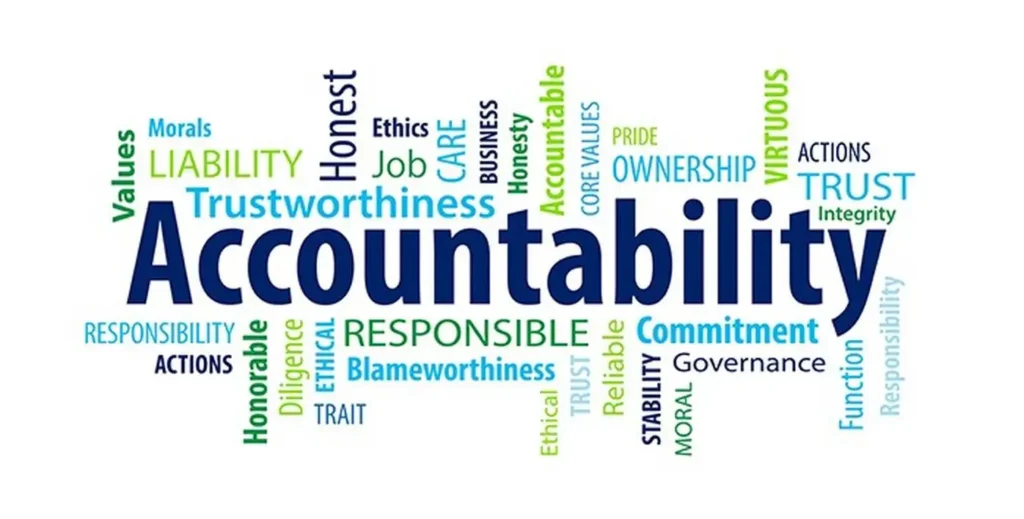
For Simons, the broader issue is not only about the ongoing legal battle but also about how Ghana treats private companies that play significant roles in critical sectors, such as energy.
Without transparency and open scrutiny, he warned, the country risks allowing powerful interests to operate unchecked.
Ultimately, his message was clear: Ghana must cultivate a culture where both state institutions and private companies are equally accountable to the public.
The reluctance to question private entities like Stratcon only deepens mistrust, undermines governance, and weakens the fight for transparency in the energy sector.
READ ALSO: Databank Research Tips Cedi for Tougher Times as Dollar Pressures Build








